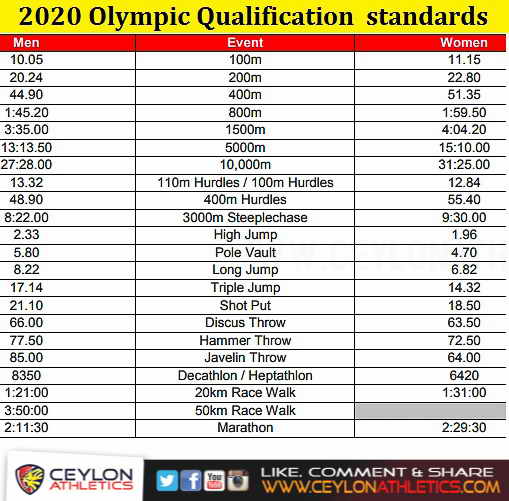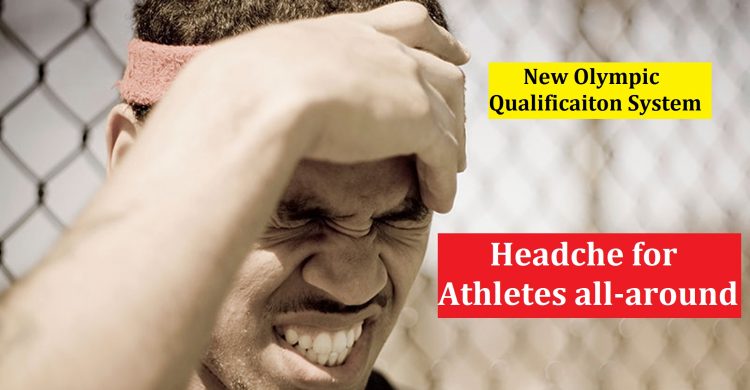Dual qualification system for Tokyo 2020 Olympics
The IAAF Council has approved the qualification system and entry standards for the 2020 Olympic Games in Tokyo, and the timetables for three World Athletics Series events to be held in 2020, at its meeting in Doha today.
In the first session of the two-day meeting, HE Sheikh Joaan bin Hamad al-Thani welcomed the IAAF Council to Doha, which will host the IAAF World Athletics Championships from September 27 to October 6 this year.
HE Sheikh Joaan, the president of the Local Organising Committee, emphasised his and the country’s commitment to staging a world-class athletics championship in Doha later this year. He also reiterated the work the Doha 2019 Organising Committee is undertaking to put operational plans in place and prepare for the Asian Athletics Championships in April, which will be a test event for the World Championships
Olympic qualification and entry standards
Athletes will have more opportunities to achieve the Olympic entry standards under the new system, which extends the qualification window by two months for most events. This will start on 1 May 2019 (instead of 1 July 2019), to include more international competitions such as the IAAF Diamond League, and end on 29 June 2020.
The qualification period for the marathon and 50km race walk will close at the end of May 2020 (instead of 29 June), to give the qualified athletes more time to prepare specifically for the Games.
After extensive consultation with key stakeholders, the Council has decided to introduce a dual qualification system, combining both the entry standards and the new World Ranking System, to determine which athletes are eligible for Olympic selection in 2020.
Under this new qualification process, an athlete can qualify for the 2020 Olympics in one of two ways:
• Achieve the entry standard within the respective qualification period
• Qualify by virtue of his/her IAAF World Ranking position in the selected event at the end of the respective qualification period.
The process is designed to achieve about 50 percent of the target numbers for each event through entry standards and the remaining 50 percent through the IAAF world ranking system.
The IAAF consulted with the Competition, Athletes’ and Coaches’ Commissions prior to this decision and will continue working with the Athletes’ Commission, the Athletes Representatives (ARs) and the Member Federations (MFs) to ensure the qualification system is well understood. Workshops will be scheduled with athletes, ARs and MFs during this year.
– IAAF

Both entry standards and the new IAAF world ranking system will determine which athletes are eligible for selection
The qualification system and entry standards for the 2020 Olympic Games in Tokyo have been approved by the IAAF Council during the first session of its two-day meeting meeting in Doha.
The timetables for three 2020 World Athletics Series events – the World Indoor Championships, World Half Marathon Championships and World Race Walking Team Championships – were also agreed as the council met in the host city for the IAAF World Championships taking place later this year.
“After extensive consultation with key stakeholders, the Council has decided to introduce a dual qualification system, combining both the entry standards and the new world ranking system, to determine which athletes are eligible for Olympic selection in 2020,” said the IAAF.
The world governing body had initially intended to use the new world rankings system to qualify athletes for the World Championships in Doha but later decided to continue to use entry standards while the period of consultation for the new system was extended.
Under the new qualification process, athletes can qualify for the 2020 Olympics by either achieving the relevant entry standard within the respective qualification period, or by virtue of their IAAF world ranking position in the selected event at the end of the respective qualification period.
“The process is designed to achieve about 50% of the target numbers for each event through entry standards and the remaining 50% through the IAAF world ranking system,” added the IAAF.
As a result, the entry standards (below) are tougher in every discipline than for Rio in 2016.
“The IAAF consulted with the Competition, Athletes’ and Coaches’ Commissions prior to this decision and will continue working with the Athletes’ Commission, the Athletes Representatives (ARs) and the Member Federations (MFs) to ensure the qualification system is well understood. Workshops will be scheduled with athletes, ARs and MFs during this year,” said the governing body.
The qualification periods are from January 1, 2019, to May 31, 2020, for the marathon and 50km race walk; from January 1, 2019, to June 29, 2020, for the 10,000m, 20km race walk and combined events; and from May 1, 2019, to June 29, 2020, for all other events.
The New Qualification System has sure started a debate .. have your say in the comments section
Olympic Standards are out and I see no fairness here to upcoming athletes….Another example of how Track and Field is killing itself with no mercy.
.
If this standard was in effect 2016,I would not be an Olympic Silver Medallist or an Olympian.Struggle is Real🤦🏽♂️ pic.twitter.com/W9bJ8RW6sb
— Paul Chelimo🇺🇸🥈🥉 (@Paulchelimo) March 11, 2019
Why is athletics so obsessed with fast times? I get it, running fast is cool, but the best stories are often the underdogs. Those you had written off pulling off a performance beyond what even they imagined. I guess we won't have many of those stories at the next Olympics.. https://t.co/W0pstDS0Vw
— Kris Jones (@Thekrisjones) March 11, 2019
Eiiiiiihs, these Qualification standards are much tougher across the board as compared to 2016 Rio Olympics. @OlympicsKe @athletics_kenya pic.twitter.com/RvnS2TzyOy
— Dennis okeyo (@dennisokeyo) March 11, 2019



